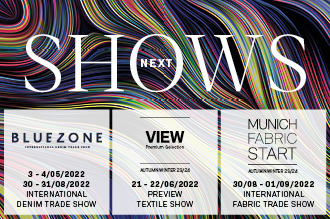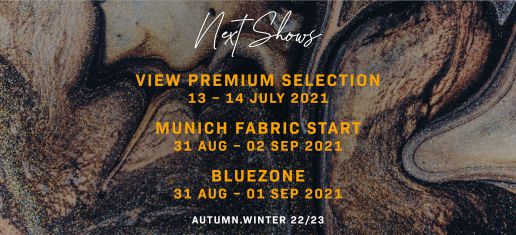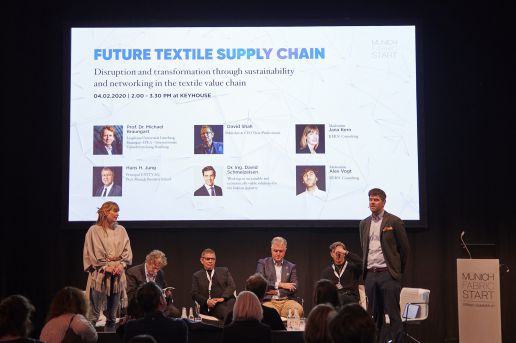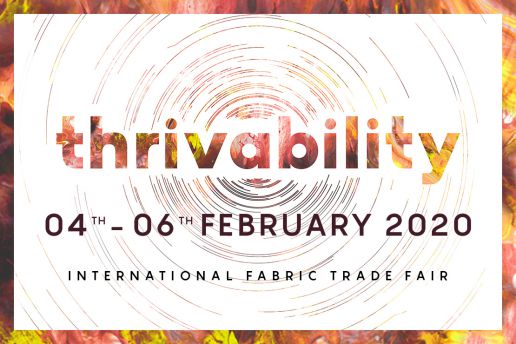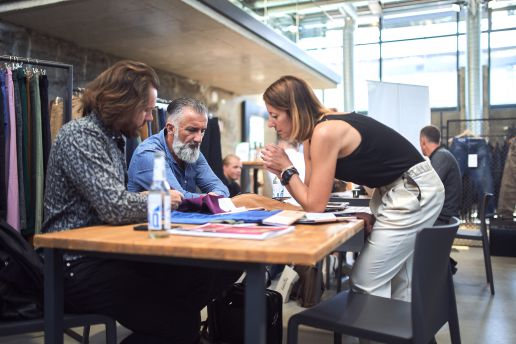Keyhouse
KEYHOUSE's CLO Virtual Fashion stands for future vision and collaborative collection development
No MUNICH FABRIC START without our Innovation Hub KEYHOUSE! Although our shows unfortunately could not take place physically at the end of January, we would like to give our long term partners and exhibitors the chance to present their developments for Spring.Summer 23 online.
As a digital specialist from Munich, CLO Virtual Fashion stands for future vision and collaborative design development.
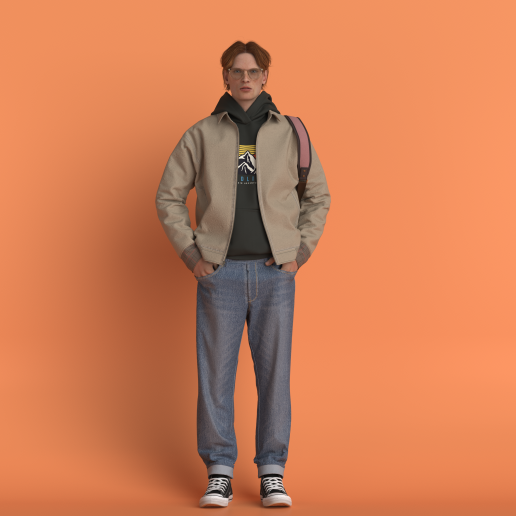
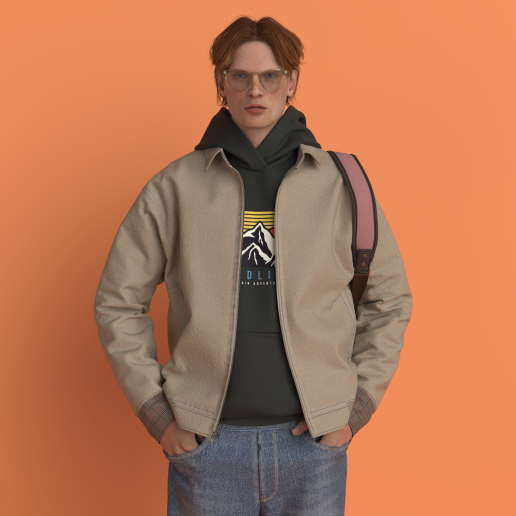
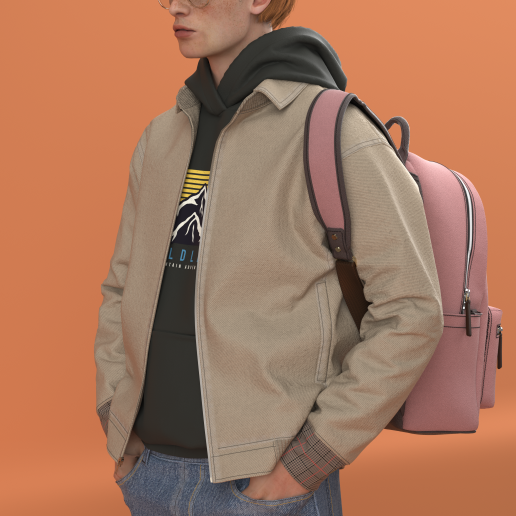
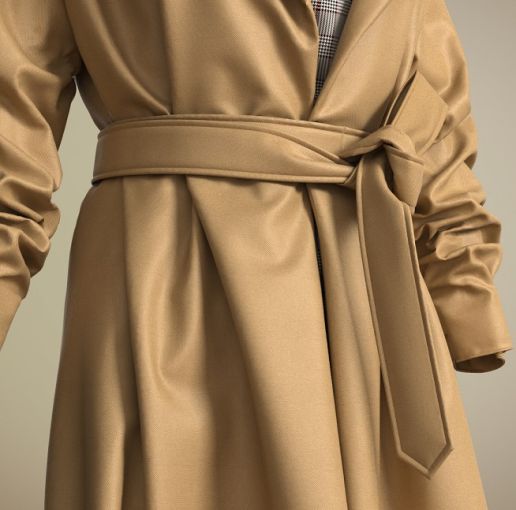
CLO Virtual Fashion is leading the market by digitally merging, consolidating, and converging all components related to digital garments. From 3D garment design software, digital asset management and collaborative design development platform, to consumer facing services such as virtual fitting on e-commerce, all of CLO’s products and services provide users the most efficient product development experience within the garment industry.
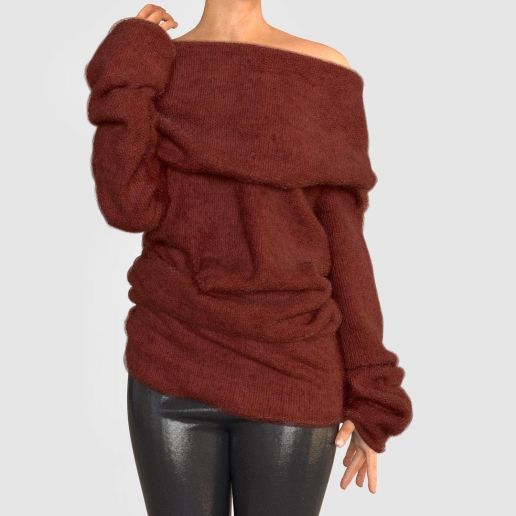
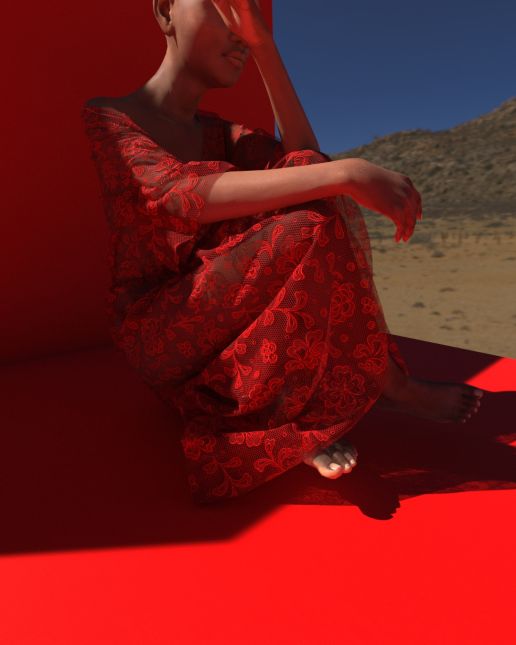
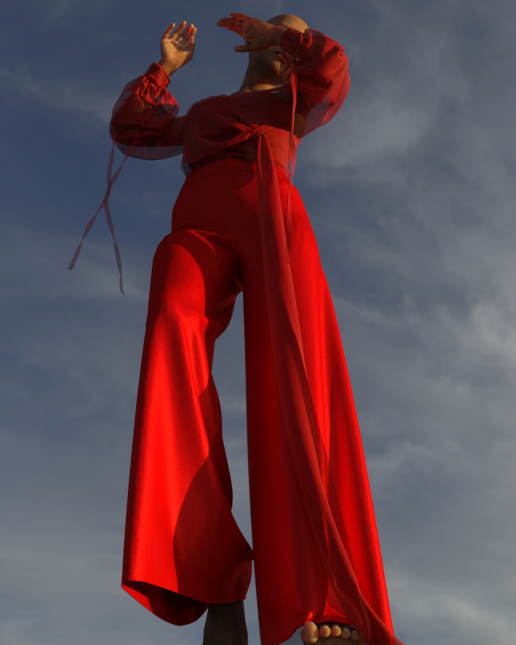
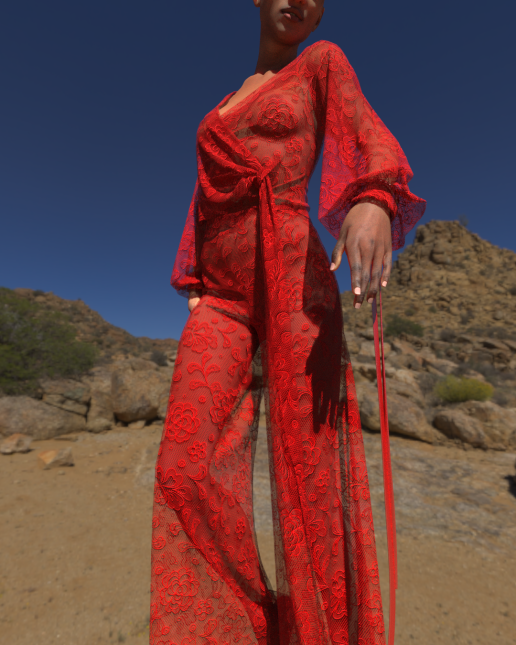
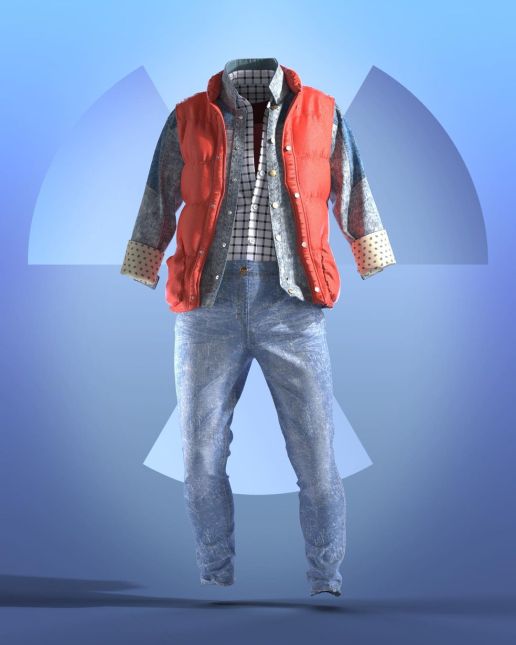
“Step beyond design.
Streamline your design development process with the power of true-to-life 3D garment simulation.
Show your creativity with CLO Virtual Fashion.”
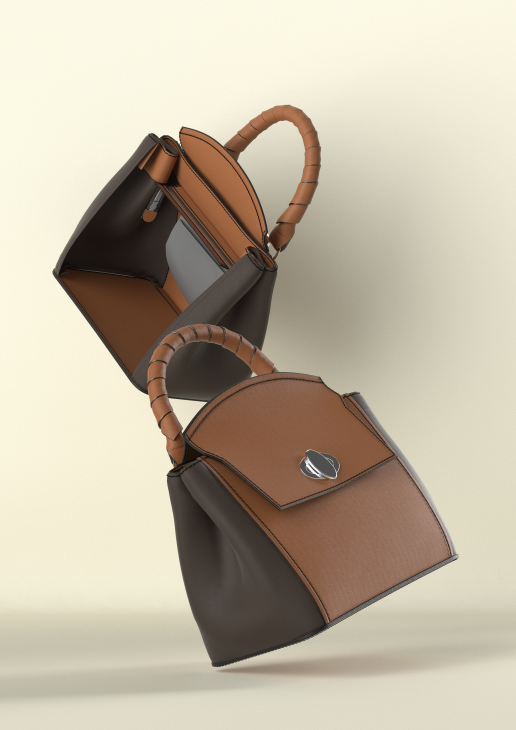
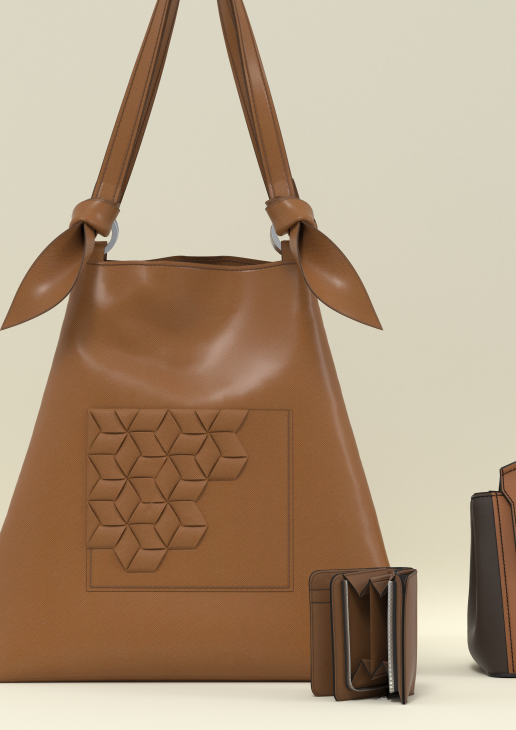
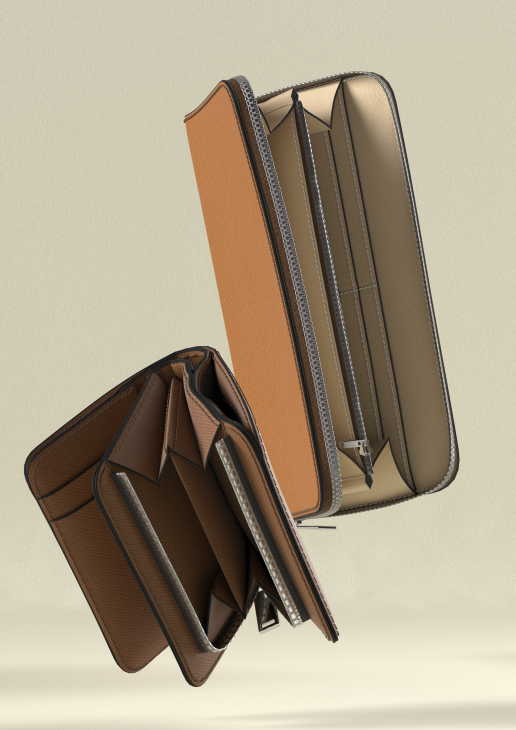
More information about CLO’s futuristic 3D Design Process can be found in this blog article:
Release of the new CLO version 6.0 >>
————————————————————————–
Experience further innovations and forward-looking developments at the first independent BLUEZONE X KEYHOUSE Show from 3 – 4 May 2022.
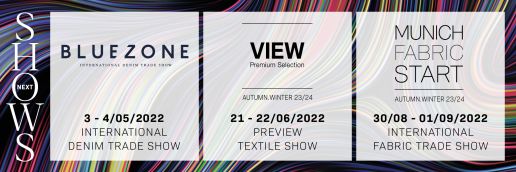
BLUEZONE X KEYHOUSE will welcome you in May
The last few weeks have been dominated by the finalisation of our upcoming shows. And we are very proud of the current, impressive status: Thanks to the enormous support from the industry, around 700 suppliers from 33 countries are registered for MUNICH FABRIC START, including more than 90 international denim suppliers for BLUEZONE.
At the same time, the very dynamic situation with the ever-increasing measures for events and the rapidly increasing infection numbers all around Europe make it difficult for us to take the next steps to be able to welcome you again in just a few weeks.
It is with a very heavy heart that we therefore feel obliged to cancel
MUNICH FABRIC START Spring.Summer 23 from 25th – 27th January 2022.
BLUEZONE can’t happen in January 2022 as well, but the good news is that we are going to realise a stand-alone denim and innovation concept from 3 – 4 May 2022 on the Zenith grounds in Munich:
BLUEZONE X KEYHOUSE
“As trade fair organisers, in addition to the major economic risk, we also have a high social responsibility. Decisive for this serious decision are various realistic scenarios that could occur in the coming weeks depending on the situation: a very short-term ban on events, further restrictions for events or additional travel restrictions. In addition, of course, the health and safety of all participants is always our top priority. Due to current developments, we unfortunately have no other option than to cancel MUNICH FABRIC START. At the same time, we see a great opportunity in being able to offer a physical platform for denim and innovations in Munich from 3 – 4 May 2022: BLUEZONE X KEYHOUSE. There, you will find an impressive new format in the style of a blue festival with currently over 90 exhibiting denim mills and innovators.”
Sebastian Klinder, Managing Director Munich Fabric Start
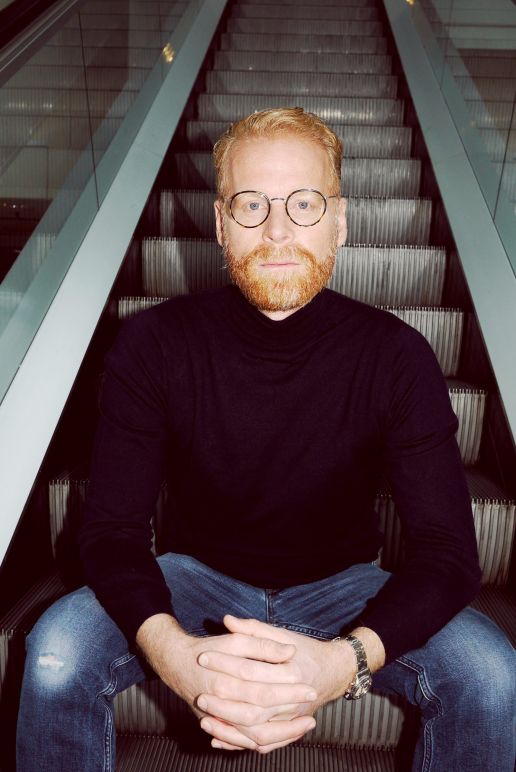
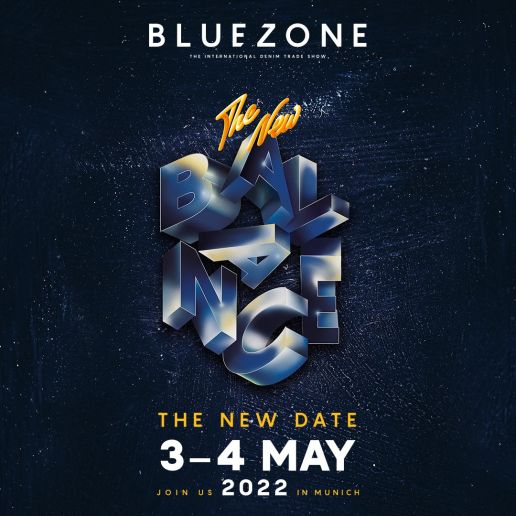
STAY TUNED: We look forward to telling you more about our BLUEZONE X KEYHOUSE concept soon & can’t wait to finally reunite the Blue Community in May again!
At the same time, we will of course keep you informed about news and the latest collections from our exhibitors via our M/UNIQUE blog and Social Media & you will soon be able to purchase our trend forecast for Spring.Summer 23.
Now we wish you a nice pre-Christmas season & above all: stay healthy!
Your MUNICH FABRIC START & BLUEZONE team
SAVE THE DATES - NEXT SHOWS

Our Upcoming Shows
Our team is ready and excited to get back to doing what we love best: organising trade shows for you. With a healthy mix of confidence and realism, we look forward to the summer months ahead and look forward to seeing you again at our upcoming trade shows for Autumn.Winter 22/23:
VIEW Premium Selection: 13 – 14 July 2021
MUNICH FABRIC START: 31 August – 02 September 2021
BLUEZONE: 31 August – 01 September 2021
Working together with our industry partners, our team is committed to meet the wishes and market needs for physical events with this trade fair planning. Using the example set by our FABRIC DAYS event, which we successfully realised in September 2020, we will of course implement the upcoming trade fairs in a Covid-19 compliant manner, because our priority remains to ensure the safety of all those involved.
Our goal is to present the established, premium portfolio of MUNICH FABRIC START again at our show in September 2021: Fabrics, Additionals, Bluezone, Keyhouse, Design Studios, Sourcing, ReSource and Sustainable Innovations. Don’t miss your chance to meet your partners in person and connect with the industry at our shows. Event registration will be available in the weeks leading up to our show but get ready here and create your visitor login.
In the meantime, please take another look at our DIGITAL TREND SPACE with your latest material developments and our newly developed BLUEZONE Living Page – we are also currently working on a new homepage for MUNICH FABRIC START, which we will be launching soon.
Release of the new CLO version 6.0
Our KEYHOUSE stands for innovation, trend development and digital pioneering. CLO Virtual Fashion was one of the futuristic exhibitors that presented their revolutionary developments in KEYHOUSE last February: the 3D visualisation of clothing.
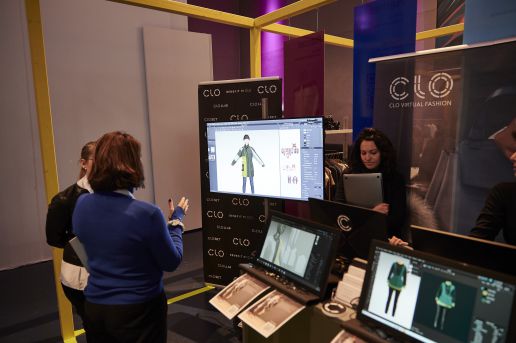
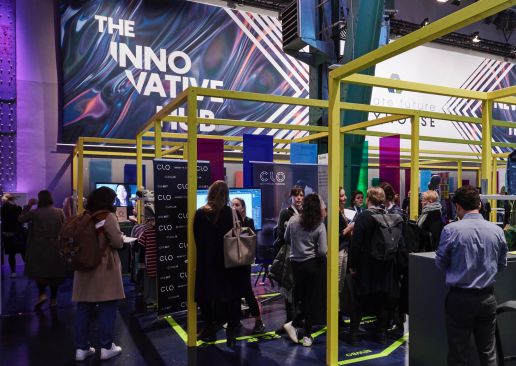
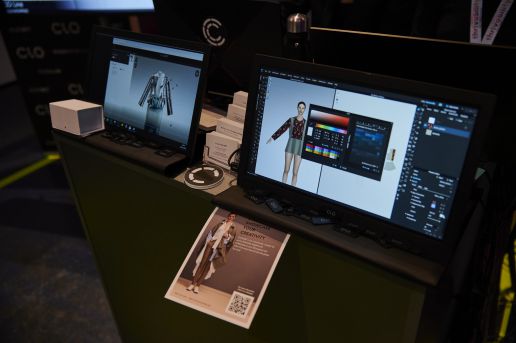
CLO Virtual Fashion is a leading global provider of 3D simulation technologies for the clothing sector. The company looks back on over ten years of experience in research and development in the field of clothing simulation and sees its technology not only as a tool for developing virtual garments, but also as a platform to provide valuable data about clothing, designs and trends with the help of garment visualisations. CLO Virtual Fashion is an international company with offices in New York, Munich, Seoul, Shanghai, Hong Kong and Bangalore.
Release of the new version 6.0
What we are particularly proud of: The innovative strength of our KEYHOUSE exhibitors cannot be stunted even by the challenges of a pandemic. We are therefore pleased to introduce you to the latest version 6.0 of CLO:
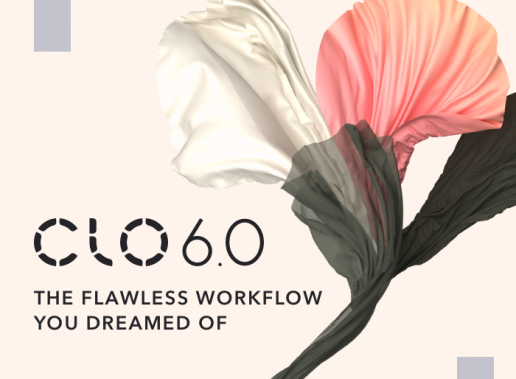
With the release of version 6.0, CLO has made the 3D design process faster, more accurate, more user friendly, more efficient and more seamless. With 6.0, CLO offers an incomparable solution for integrating a seamless digital end-to-end workflow. With the new cutting-edge features, designers can create virtual garments like never before.
One of the most revolutionary features of this version is Auto Sewing – which is exclusively available at CLO 6.0. This enables users to automatically sew their garments with just one click, which further shortens lead times. Other innovative new functions are also: Automatic Grading, whereby the cutting patterns can be adjusted based on the body shape and not just using the parametric size table. Grading Review enables users to check sizes at a glance. Pattern nesting minimizes fabric consumption for more efficient production and PBR format, which enables highly realistic fabric visualisation.
Key Features of CLO 6.0
- Grading Review:Compare garment and/or avatar grading in a single window.
- Auto Sewing: Patterns are automatically sewn based on their placement on avatars.
- Texture Editor:Express complex graphics by overlaying multiple images. When images repeat, create seamless graphics by editing their outlines while referring to the preview.
- Print on Fabric: Print various patterns on fabric.
- Render | Subsurface Scattering Material: Realistically express human skin. Subsurface scattering material penetrates and scatters under the objects’ surface. Utilise the material to illustrate leaves, fruit, candles and more.
- Automatic Rigging & Converter: Add joints or convert user data to CLO avatars and use CLO Avatar Editor.
- Schematic Rendering Style for Tech Pack: Render 3D garments into technical drawings for Tech Pack.
- UV Editor Mode:Create UV maps of patterns, buttons and zippers as well as create normal, rough and metallic alpha maps.
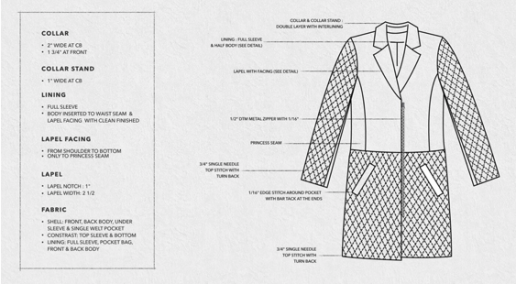
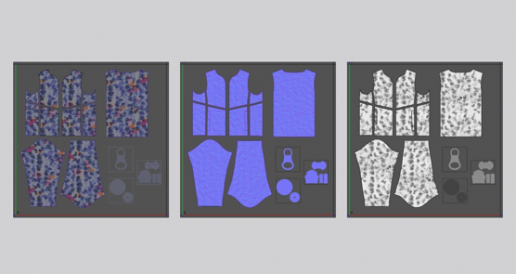
3 new integration partners for CLO 6.0
Besides the updates of the key features, CLO 6.0 also convinces thanks to three new integration partners: Jeanologia, Substance and ColorDigital.
CLO Virtual Fashion has partnered with Substance by Adobe, tool to creat 3D textures, Jeanologia, the Spain based company specialising in finishing technology solutions for denim and ColorDigital, pioneer in uniform and efficient colour and surface communication, for the release of CLO 6.0. These exciting integrations allow brands and designers to achieve a desired and flawless workflow by optimizing the entire 3D design process from start to finish and enabling them to create sustainable digital designs that are an exact 1:1 representation of the physical end product.
“By providing practical and seamless workflows with Substance by Adobe, Jeanologia and ColorDigital, CLO users can now extend their design continuity to its fullest with their much loved applications. We are thrilled to work with accredited partners to bring augmented value to our users.”
Simon Kim, CEO of CLO Virtual Fashion
Jeanologia makes it possible to import washing files of the eDesigner
Import various types of washing libraries and JEAN files and apply them to garments as graphics. JEAN files are from the eDesigner application by Jeanologia which provides a laser washing solution.
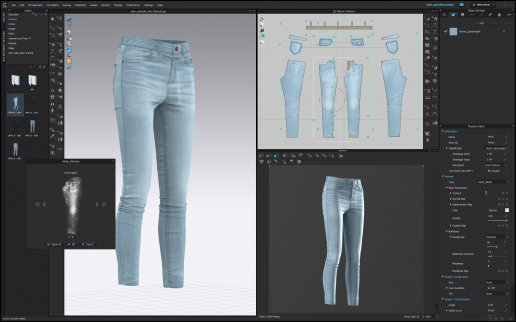
“Today more than ever we need to implement digitisation in our industry. Design, digital collection and 3D virtual reality are going to be key to recovery. With the integration of eDesigner and CLO, we are able to make the dreams of designers a reality by connecting designers with wash developers and brands with manufacturers. It will be a complete transformation in the jeans industry.”
Josep Maria Carbonell, Software Developer Director Jeanologia
Create fully customisable materials with Substance by Adobe & X-Rite AXF
Import SBSAR files by Substance, the leading software solution for 3D digital materials, allowing you to download luxury materials with infinite texture variations or create fully customisble materials from scratch or via a scan, with complete authoritative control. In addition, import AxF files by X-Rite, a tool that generates realistic fabrics via various maps extracted from 3D fabric scanning.
“We are excited to collaborate with CLO and empower designers to push the fashion industry forward with 3D technology that expands the definition of what’s possible. The Substance integration unlocks the ability to iterate on materials instantly, present photorealistic designs, and discard unwanted prototypes without any waste. CLO designers are guaranteed an unprecedented level of control and realism and we are eager to see what they will create.”
Francois Cottin, Director of 3D & AR Marketing, Adobe
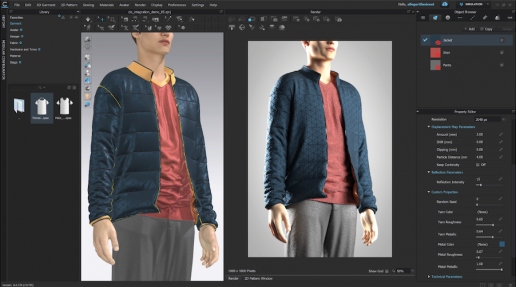
Use materials and colours of ColorDigital
Simply click and drag materials or colours from Color Digital’s DMIx cloud, and apply them to CLO’s garments.DMIx Cloud manages different forms of digitised materials, accessories and colours.
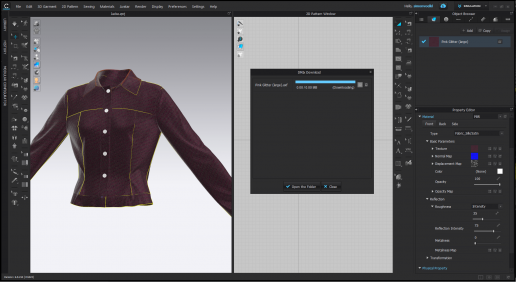
“With this partnership we enable the 3D Artist to use the libraries by their suppliers with a simple drag and drop of the material from the DMIx Cloud© directly on to their creations. This being done while keeping the full DMIx© quality in terms of color and PBR Standard based material. This enables a holistic approach of digital product development between brands and vendors on a common standard including master data, by using the most advanced raw material and trims solution in conjunction with the leading 3D garment technology.”
Gerd Willschütz, COO, ColorDigital
Be curious about the innovations that will be presented at our upcoming shows!
It Has Never Been Easier to Find Matching Pantone Colours
Colours are one of the most important parameters in trend analysis and the design of new collections. The right shade often only differs in nuances within the colour palette to achieve the desired colour harmony for the collection. Nowadays, we find inspiration for colours everywhere in our live: whether in nature, the food industry, interior design or beauty products.
In order to allow these colours to flow into the design process, our long-standing partner Pantone is especially addressing designers with its latest development: A platform with Pantone color libraries, color values and powerful navigation functions – always available wherever you are working with colors. The new digital color platform Pantone Connect simplifies your work and workflow by giving you access to all Pantone colors through a single-user account at any time across mobile, web, and the Adobe® Creative Cloud® applications.
“Our company has worked closely alongside creatives in the graphic, fashion, and product design industries to understand how color can become an enabler of performance rather than a hindrance. Pantone Connect’s unique combination of technology (enabled by X-Rite), features, and platform accessibility will give designers the tools they need to be confident in their color choices and ultimately successful with their creative work. They win with the Pantone Connect platform because their color choice reflects an informed decision made efficiently and communicated effectively.”
Adrián Fernández, Vice President and General Manager, Pantone
The Pantone Color Match Card
In addition to the App Pantone Connect, the new platform also includes the revolutionary Pantone Color Match Card, an innovative target in credit card size.
The Pantone Color Match Card works with your phone’s camera to measure and match coloured objects, materials, and surfaces to a Pantone Colour. With the size and portability of a credit card, this unique solution makes matching an inspirational colour to Pantone as easy as taking a photo – at accuracy levels approaching more expensive colour-reading devices. Use the Color Match Card with the Pantone Connect mobile app to capture a colour, search for a best match, and save your chosen Pantone Colour to a palette for designing later in the Pantone Connect Extension for Adobe Creative Cloud.
Together with the Pantone Connect app, you can measure the color of objects, materials and surfaces and match them with Pantone colors. Simple, portable and more accurate than color extraction from images.

Merging physical color with a digital workflow through an innovative approach, this Card-App pairing makes Pantone color identification and communication from physical inspiration to final design a streamlined, accurate, and affordable option for large dispersed design teams and freelancers alike.
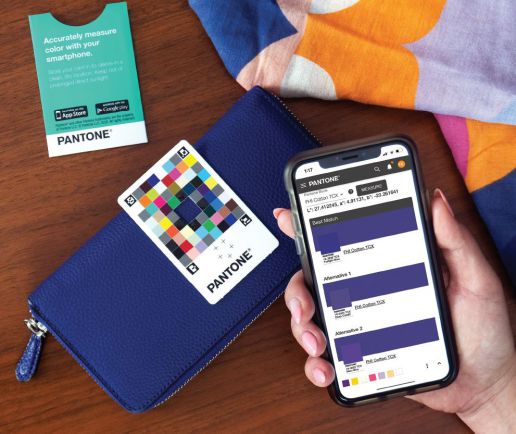
“With the Color Match Card and Pantone Connect app, a designer’s phone has now become a legitimate color capture device to match the physical world more accurately to Pantone Colors, as well as a workflow productivity tool to shorten the color communication process, at a nominal cost.”
Nick Bazarian, Senior Product Manager, Pantone Digital Solutions
With Pantone Connect, you can streamline color selection, color communication and the design process. For example, you can match physical color samples with Pantone colors, create and arrange palettes for design projects or apply Pantone colors to design files. The result is greater accuracy and less time or rework.
The software easily converts eye dropper, Hex, RGB, CMYK, and L*a*b* values to the nearest Pantone Color, meaning for fashion designers they can rapidly turn digital colour inspiration into the reality of ready-for-production.
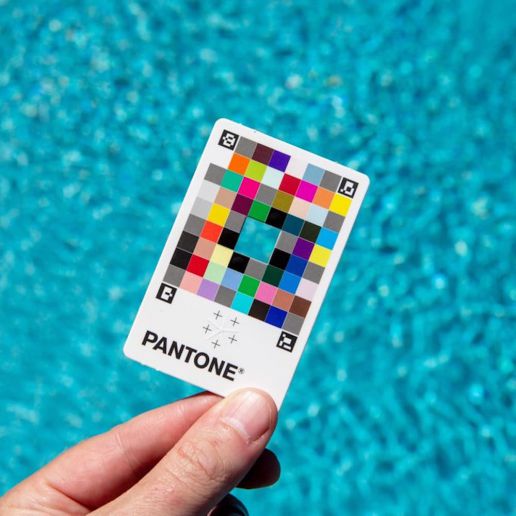
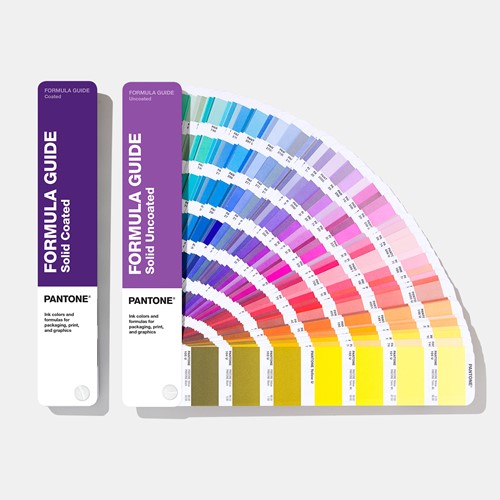
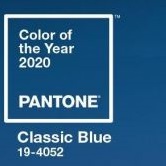
For more information on Pantone Connect and how to create a new account, visit www.pantone.com/connect. Mobile apps for iOS and Android can be downloaded from the Apple App Store and Google Play Store, respectively, while the Pantone Connect Extension for Adobe® Creative Cloud® can be downloaded from the Adobe Creative Cloud Exchange website.

OPENING TIMES
2. MARCH 2021 · 9:30 – 18:30
3. MARCH 2021 · 9:30 – 18:30
4. MARCH 2021 · 9:30 – 16:00
LOCATION
MOC Munich | Halls 1 – 4 Groundfloor
Lilienthalallee 40
Germany, 80939, Munich
Disruption and Transformation in the Textile Value Chain
In the February edition of MUNICH FABRIC START, KEYHOUSE hosted an expert led panel discussion, merging their collective knowledge and experience under the topic, ‘Future Textile Supply Chain – Disruption and transformation through sustainability and networking in the textile value chain’. Moderated by Jana Kern & Alex Vogt of KERN.Consulting with Prof. Dr. Michael Braungart (Braungart EPEA), David Shah (View Publications), Hans H. Jung (Unity AG) and Dr. David Schmelzeisen (RWTH Aachen).
The fashion industry is currently facing unprecedented challenges as a result of COVID-19, especially critical are those concerning the global supply chain. Change is accelerated during these times and it has become crucially important to share our collective knowledge and expertise in order to develop positive, future proof solutions. On the KEYHOUSE stage, our industry experts exchanged their thoughts and expertise, offering their unique insights and key points for further action and reflection.
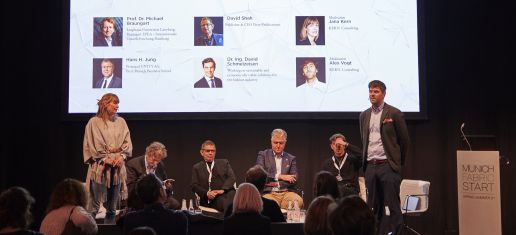
How attractive has the option of localisation become to companies?
While local production may look like an attractive alternative that could perhaps satisfy a growing standard of consciousness and need to keep up with demand, it is problematic because companies will always seek out the cheapest option, said David Shah as he offered a further insight:
“Turkey will become the new ‘China’ to Europe, just as Mexico will become the new ‘China’ for America.”
On the one hand, there are the typical pressures demanded from the point of view of the manufacturer which will always exists, such as; speed, price, product diversity, range and lifespan, speed of delivery as well as waste reduction. However on the other hand there is now a need to satisfy the consumer demand for those who are seeking a more meaningful experience, individuality and faster to market which is almost counterintuitive.
To what extent will consumer demand for sustainable manufacturing shape current business practices?
While fashion movements, professionals and activists advocate for greater transparency and traceability which can ideally change this damaging mind-set mentioned previously, panellist David Schmelzeisen believes it is still the case that the majority of end consumers want faster change times but at the same time lower prices. He believes that the controlling power does not yet lie with the conscious consumer, adding:
“We need to be more flexible and that is where digital technology comes in and why we will see a lot of changes in the future. For this we need smaller MOQ’s (Minimum Order Quantities) which is leading producers to look for new digital and technical solutions as well as new design solutions.”
How can digitisation provide a solution for more accurate production quantities?
Digitisation is transforming the entire supply chain, the connection between production and actual customer demand is getting closer. Hans Jung believes digital tools offer the unique opportunity to learn what the customer wants, such as with customer interface throughout all the different stages of usage, acting as a systematic feedback loop for optimisation. He states
“Production industries are now evolving and adding additional functions in a much more sustainable way than in the past.”
How crucial is the practice of circularity for the textiles industry in the future?
Circularity is crucial to the future of our industry and it should be explored as there is a lot of opportunity to build on this kind of system within the textile industry. Michael Braungart strongly believes the future lies in opening up the circular processes and materials which conventionally may be contained to only the textile industry. As these may have other relevant applications in production industries across various stages of the process and thus increasing the effectiveness of circularity. He also shared his crucial opinion that where brands use smart textiles, there must be an equally smart effort to communicate with the consumer. It is important to educate the consumer on how to use the product better for circularity to truly be in effect.
Want to know more? Watch the full discussion now available on our YouTube channel.
MUNICH FABRIC START – A Paradigm Shift Towards Holistic Sustainability
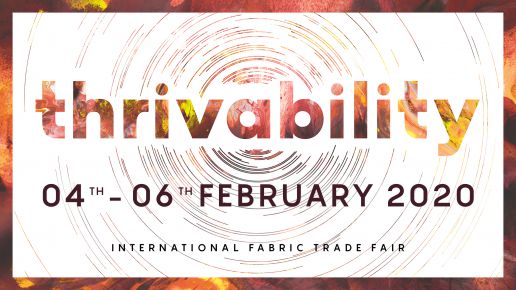
A new level of sustainability, digitalisation, transparency, a growing need for information and the desire to inspire
– that’s what the Spring.Summer 21 season stands for.
The awareness of a new ecology has become one of the strongest social movements. It challenges us to rethink, to take responsibility, to create transparency and to enter into an intensive dialogue.
The MUNICH FABRIC START with BLUEZONE, KEYHOUSE and the individual showcases presented by around 1,000 international suppliers of fabrics and additionals will introduce the Spring.Summer 21 season from 4 – 6 February in Munich. Approximately 20,000 trade visitors will have access to an extensive range of fabrics, additionals, designs, manufacturing services, supported by an informative and inspiring events programme.
The Spring.Summer 21 season is characterised by dynamism, waves and radiance – the guiding theme THRIVABILITY brings enthusiasm, creates excitement, let’s blossom and flourish. THRIVABILITY deconstructs our understanding of fashion and embeds a new, positive way of thinking: aesthetics and people see eye to eye; resources and nature are respected. This creates a new understanding of holistic sustainability and future-oriented entrepreneurial spirit. Spring.Summer 21 answers current market needs and reflects an evolved understanding of values. Knowledge, transparency, quality, responsibility and communication influence the current showcase of innovative product and processes on offer. THRIVABILITY combines the essence of this new era with a classic definition of trends and cultivates an inspiring and progressive direction for materials, fashion and design.


MUNICH FABRIC START HIGHLIGHTS
ASK THE EXPERT – Communication islands with THRIVABILITY experts.
Taking into account the focus on sustainability and innovation driven by THRIVABILITY, a new information concept will be integrated into the Trend Forum at the upcoming MUNICH FABRIC START. At various communication islands in the foyer of the MOC, industry experts will provide impulses and answers to current questions, from the origins of the material to exploring the diverse range of production processes and end garment recycling. Through direct discussions, you will gain valuable know-how, insights into topics and current solutions for both sustainable and innovative processes along the value chain:
CIRCULARITY | FIBERS & MATERIALS | MARKETING & COMMUNICATION | RECYCLING | SOCIAL RESPONSIBILITY
NEW ICON GUIDANCE SYSTEM
In addition, MUNICH FABRIC START has implemented a newly developed icon guidance system which in the spirit of transparency, identifies the sustainable and technical aspects of all the material highlights presented in the Trend Forums. In this way, visitors can establish these respective and previously hidden properties of textiles and ingredients at a single glance.
FABRICS
AWARENESS AS A DRIVER OF INNOVATION. Around 700 suppliers present their creative new developments across more than 1,000 collections – based on the latest technology innovations and the conscious and conservative use of resources. The fashionable combination of natural and innovative fibres is reflected in numerous new textile qualities including: luminous surfaces, wet gloss looks, soft glazes, colour gradients, transparent qualities, abstract patterns and relief elements. This season, MUNICH FABRIC START once again unites textile producers with a huge range of state-of-the-art fabrics, presenting not only essentials such as cotton, viscose, wool, elastane, lace and linen, but also novelties such as super-stretch silk, recycled polyester, Ecovero-Tencel linen, Naia and Cupro fibre blends or hemp textiles.
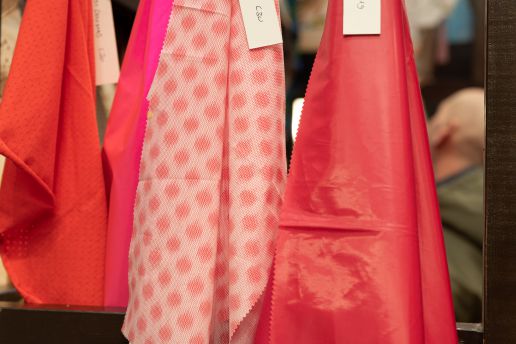
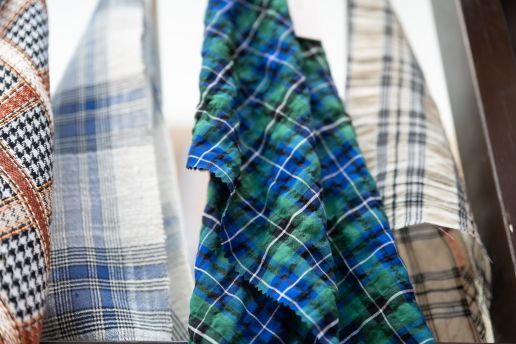
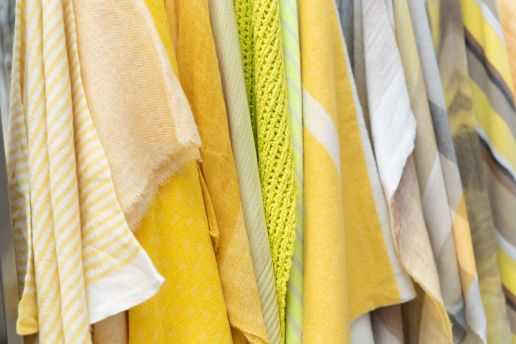
ADDITIONALS
TRIMS FOR FUTURE – this is the global motto which represents approximately 200 of the world’s leading international ADDITIONALS suppliers. Fashionable new developments revolve around iridescent surfaces, glowing yarns and electrifying colour applications. The focus is on recycled and sustainably produced products in natural colours. ITL Group will not only show its comprehensive range of products for the first time, but will also launch its C.A.R.E. Collection (Conscious, Affordable, Responsible, Eco-friendly labels) during the upcoming trade fair. Clic sums up these developments: “We have focused on realistic and organic articles that preserve nature both in form and texture”.
ReSOURCE
In a comprehensive forum, the ReSOURCE Area categorises and presents around 800 sustainably produced articles by exhibiting fabrics and additionals producers. “With our ground breaking DryIndigo® technology it is now possible to produce denim with 0% water consumption”, Tejidos Royo describes its latest milestone. Bornemann Etiketten sees the biggest challenge in balancing creativity, sustainability and efficiency, while Dutel focuses on timeless and durable top quality. Lanificio Roma pursues resource saving process solutions with the aim of wasting less and reusing production and consumption waste as new resources.
DESIGN STUDIOS
Natural colours based on sustainable dyeing techniques now determines the colour palettes of the inspiring designs at the internationally renowned, textile designers and trend offices in the DESIGN STUDIOS. The current change in the textile industry is leading to a revolution in the printing and dyeing industry and inspires a revival of natural dyes. Design Union and Primus Pattern also emphasize the simultaneous closeness to nature and diversity of textile prints for Spring.Summer 21.
SOURCING
Ready-made solutions are becoming more and more important and the interest in sourcing providers close to the market is also growing with a focus is on speed and a reduction in complexity. As globally established manufacturing companies in the SOURCING Area, numerous high-quality newcomers such as Easy Invest Solutions or Union 3 Fashion offer comprehensive insights into the entire textile production chain and its reliable procurement management. For Spring.Summer 21, Cascade Enterprises takes its inspiration from nature and returns to the basics in prints, fabrics and silhouettes. Sourcing specialist Fateks Kumas Tekstil offers and processes fabrics made from recycled PET bottles, also to conserve resources.
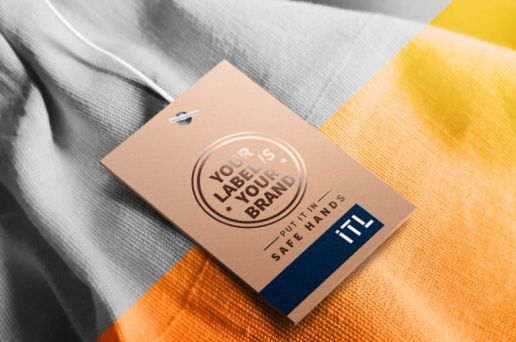
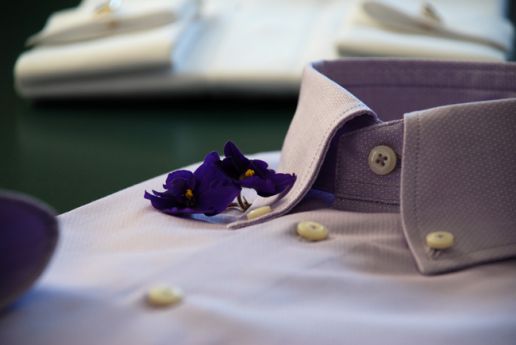
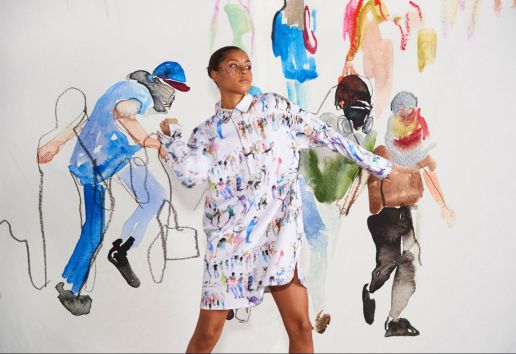
As the think tank for innovation, KEYHOUSE provides insights into future fabrics, new technologies, smart products & processes, sustainable innovations and alternative material resources, offering and inspiring pioneering concepts. For more information click here.
With over 100 major international brands, BLUEZONE has positioned itself as the initiator of an extraordinary, strong and innovative denim community. The answer to a conscious consumer approach and a growing interest in ready-made solutions that offer revolutionary products, state-of-the-art technological processes and complex functionalities. For more information click here.
KEYNOTES & SEMINARS
At the upcoming MUNICH FABRIC START, there will be a premium event programme featuring impressive panel discussions, polarising keynotes and trend seminars by international experts. The KEYHOUSE in Hall 5 will feature exciting lectures on the various subjects of innovation. The diverse events on offer in the BLUEZONE area of Hall 7 will provide an in-depth insight into the developments in the denim industry, while the ReSOURCE Forum in K3 in the MOC will offer an equally relevant programme on the topics of sustainability, certification and quality seals.
David Shah about „The 10 Design Pillars” – Tuesday, 4 Feb 2020, 10.30am – 12pm
The trend forecaster and publisher of Textile View will deliver the keynote “The 10 Design Pillars”. David Shah presents new perspectives on design influences from Slowbilisation to Hopepunk, from Biophilia to Datascapes.
Fashion Revolution – Tuesday, 4 Feb 2020, 12pm – 1pm
Ariane Piper gives an insight into Fashion Revolution – how the campaign will revolutionize the fashion industry. The viral campaign “Who made my clothes” will once again feature in the trend forums as an installation for transparency in the fashion industry.
Expert panel about „Future of the Textile Value Chain” – Tuesday, 4 Feb 2020, 2pm – 3.30pm
The panel discussion with expert participants on the subject of “Future of the Textile Value Chain” will be moderated by Jana Kern and Alex Vogt from KERN Consulting. The five international experts, including Prof. Dr. Michael Braungart, Hans H. Jung, David Shah, Jan Wilmking and Lauren Zahringer, will discuss the disruption and transformation through sustainability and networking in the textile value chain.
Rivet 50‘s 2020 Vision – Tuesday, 4 Feb 2020, 3pm – 4pm
What will the new decade bring for the denim industry and community? Rivet 50 will lead a discussion between some of the world’s most influential denim characters to discuss their predictions for business, technology and fashion.
Exclusive Trend Seminar by Li Edelkoort – Tuesday, 4 Feb 2020, 4pm – 6.30pm
Arguably the most famous trend forecaster of our time holds an exclusive trend seminar. In an impressive presentation, GREEN WAVE – the Fashion Trends for Spring.Summer 21, as GREEN BOOK – the Recreationwear Trends for Spring.Summer 21, as well as STILLNESS – a Full Colour Forecast for Autumn.Winter 21/22.
„Fashion Activism” Panel by Muchaneta Kapfunde – Wednesday, 5 Feb 2020, 11am – 12pm
FashNerd founder Muchaneta Kapfunde brings together the experts Kresse Wesling, Styliani Parascha, Marta Waydel and Marina Toeters as part of the panel discussion “Fashion Activism: Creating the Fashion of the Future.”
Hessnatur Stiftung about „The way to the green button“ – Wednesday, 05 Feb 2020, 11am – 12pm
Rolf Heimann, CEO of the Hessnatur Foundation, Institute for Applied Sustainability, explores in a lecture the question “How do I prepare my company for certification?”.
„How automation will change the fashion industry” – Wednesday, 5 Feb 2020, 2pm – 3pm
The five experts in technology, David Schmelzeisen, Ralf Schneider, Dr. Thomas Fischer, Jon Zornow and Sabine Kühnl will discuss “Don’t be afraid of robots – how automation will change the fashion industry” in a panel discussion. Automation, digitalisation and localisation are the trends that are reshaping the global fashion market. Is the fashion industry ready to adapt to new standards? What consequences does this have for the current procurement structure, also in terms of social responsibility?
“The data behind today’s winning marketing strategies” – Wednesday, 5 Feb 2020, 5pm – 6pm
Gina Gulberti, VP Digital Marketing at Launchmetrics, explains in her keynote “The data behind today’s winning marketing strategies”.
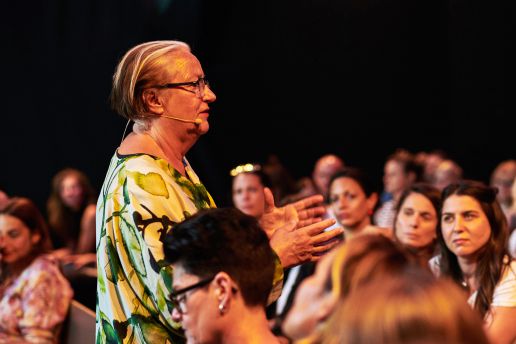
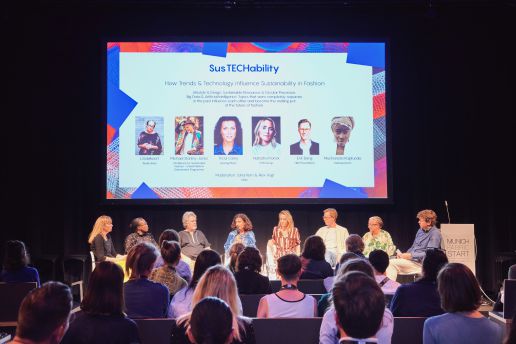
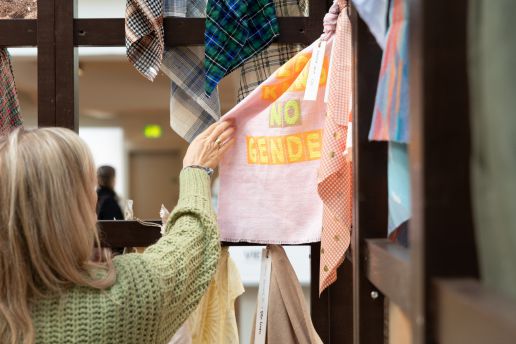
All dates and the complete events programme can be found here.
MUNICH FABRIC START & KEYHOUSE & SOURCING
04 February 2020 | 9.30am – 6.30pm
05 February 2020 | 9.30am – 6.30pm
06 February 2020 | 9.30am – 4.00pm
BLUEZONE
04 February 2020 | 9.30am – 6.30pm
05 February 2020 | 9.30am – 6.30pm
KEYHOUSE – A Strong Network of Creative Minds
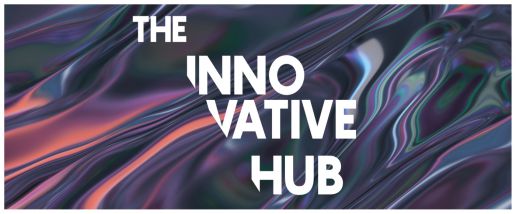
Progress and new levels of sustainability. Combining hand-made and digitalisation. The future of the textile and fashion industry is complex and challenging. The demand for greater transparency and information, for innovative solutions, new mindsets and forms of production is all the more loud and urgent.
KEYHOUSE, as the think tank of MUNICH FABRIC START, offers concrete approaches towards a visionary textile and fashion industry, providing answers, inviting discussions and interaction, showcasing new directions and definitions of innovation. In this way, an inspiring network of unique partnerships and collaborations with ambitious projects has been established.
At KEYHOUSE, everything revolves around innovation – be it the luminous jacket from MUSGO TECH, 3D printing and 3D knitting from Cocccon, the solution for a digitally networked supply chain from Lectra, or the Nebudye dyeing process using the Officina +39 nebulization system. Numerous innovative suppliers will showcase their trend defining developments for the first time at KEYHOUSE, including CLO Virtual Fashion with 3D visualisation of garments, Circular Fashion with workshops and software tools for innovative recycling management, and Recover providing accurate colour in upcycled yarns.
“Fashion must take a holistic hybrid approach in order to establish sustainable innovations in the apparel industry as a permanent feature.
These sustainability initiatives can be implemented by integrating new technologies with a high degree of design, disruption and integration.”
Muchaneta Kapfunde, Founding Editor-in-Chief FashNerd.com
HIGHLIGHTS AT KEYHOUSE
THE NUTURE ROOM WITH PAULINE VAN DONGEN. With “The Nurture Room“, Pauline van Dongen creates a space for meeting and inviting exchange among like-minded people who share the desire to redefine the fashion industry. The organised shared research sessions on topics such as workwear, outdoor clothing or casual wear etc. are led by fashion tech experts and show how technology can be sensibly embedded in clothing. Workshops will inspire participants to expand their know-how and connect companies along the entire value chain so that they can follow up with concrete action. Please find an overview of all workshops sessions here.
Due to the limited number of participants in the free workshops, we kindly ask you to register by sending an email to Chantal Gräff at cgr@munichfabricstart.com.
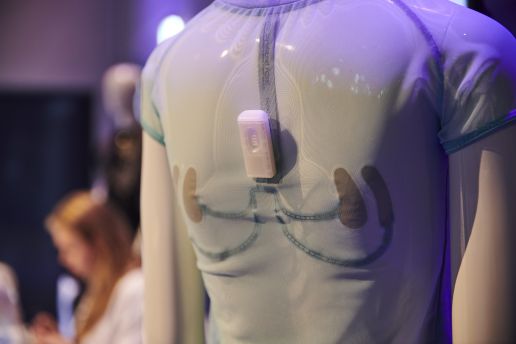
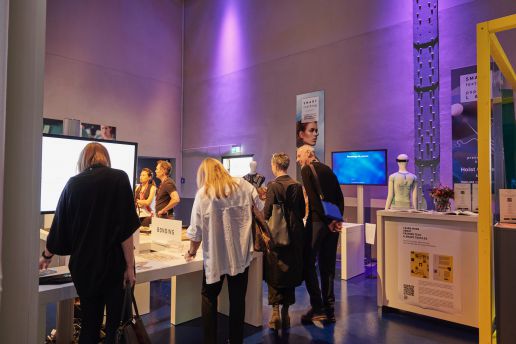
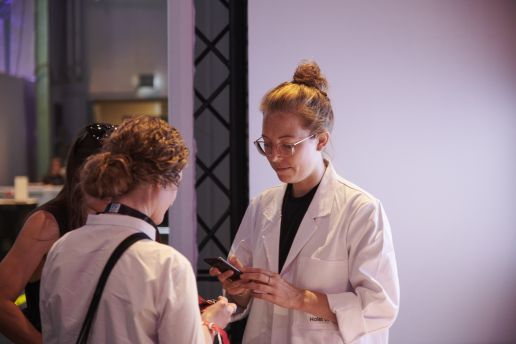
RE-FREAM PROJECT BY CARMINA FERRI. With her project Re-FREAM, Carmina Ferri, founder and CEO of Care Applications, wants to bring together designers and researchers to jointly develop innovative fashion concepts. Designers are invited to submit their proposals for ‘3D Manufacturing’, ‘Electronic & Textiles’ and ‘From Linear to Sustainable Circular Systems’. The winning innovative art concepts will then be developed in the three corresponding research centres.
The SUSTAINABLE INNOVATIONS Forum combines poetry and problem solving. It will showcase inspiring developments and establish new perspectives on the world of textiles: from extraordinary innovations, new material resources and the combination of the traditional and modern to captivating and thought provoking installations. Discover the following innovations:
- Karin Vlug und Bas Froon see the future of fashion in regional fashion production that is made to measure, on request and using digital technologies.
- CONSUMPTION OF HERITAGE. Sun Lee questions the values of consumers and producers and thus those of the conventional fashion system.
- PRINTING WITH LIGHT. Madeleine Marquardt combines new technologies with Cynatopie, one of the first photographic printing processes, thus opening up new possibilities for modern textile design.
- SEAMLINE PROJECT. Gu Qiong emphasizes the object character of clothing by highlighting seams in brightly coloured yarns.
- SISAL, MORE THAN A ROPE. Isabella Monaco uses sisal for clothing and is experimenting with hydrogen peroxide and sodium carbonate to make the natural fibre softer while maintaining its robustness.
- RINSE OFF. Caterina Tioli uses the properties of potato starch to stabilize unspun wool for processing.
- CT DAIRY. Gal Yakobvitch develops a water-repellent coating for textiles based from milk protein. The result is a sustainable unisex workwear made of vegetable-dyed second-hand T-shirts.
- FOREIGN FORAGING. Jeanette Lili Weiss poetically addresses the complex problem of scarcity and abundance in times of climate change.
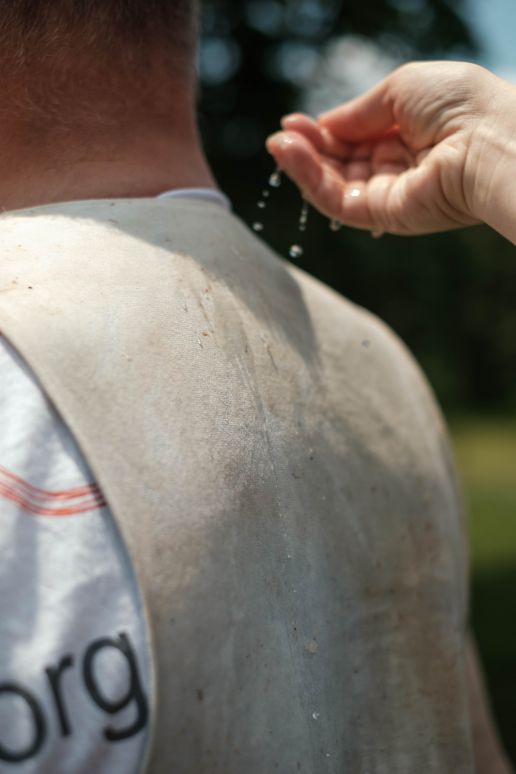
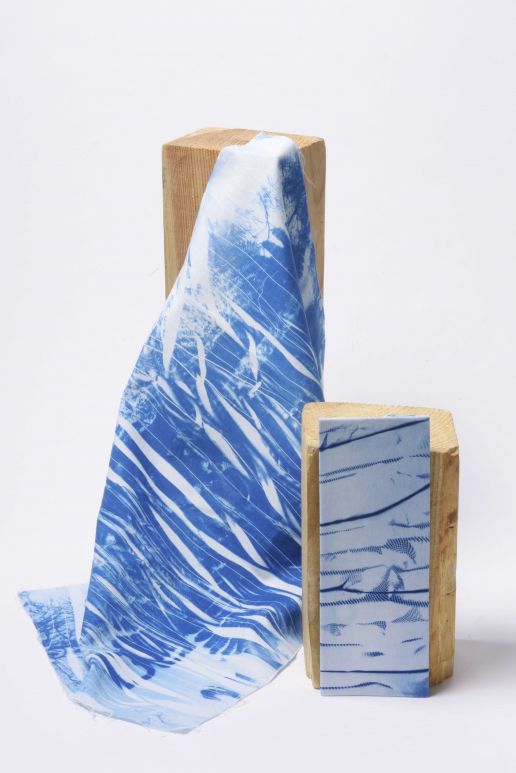
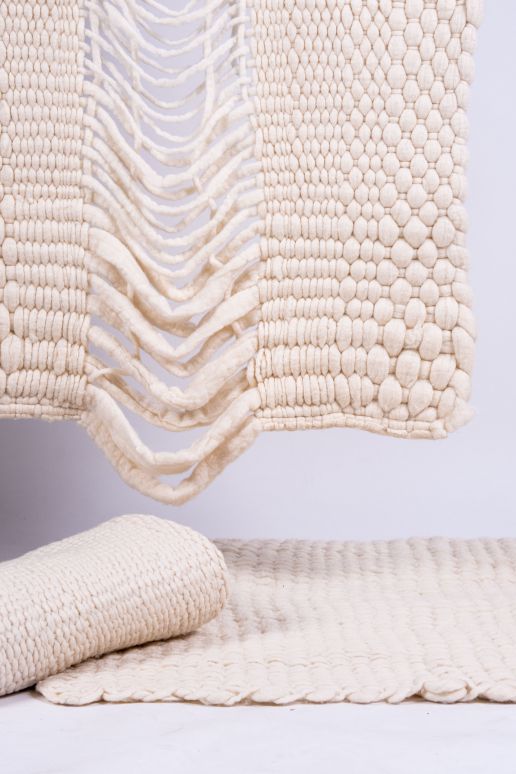
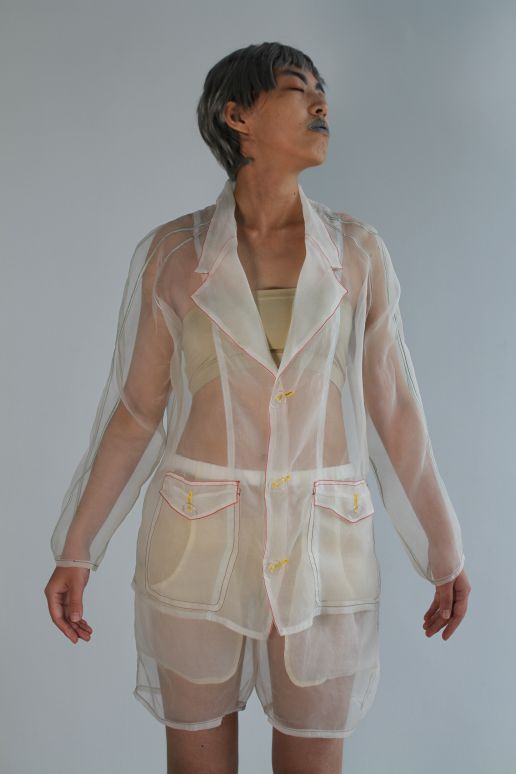
“Our goal is to take a look at the possible future with these 8 selected Sustainable Innovations, so that the industry and its professionals can reach the next level. It is an ongoing dialogue. We are a community that is growing and connecting, sharing visions and ideas – it’s a very inspiring atmosphere”.
Simon Angel, Curator Sustainable Innovations MUNICH FABRIC START
KEYNOTES & SEMINARS
KEYHOUSE also offers a comprehensive and exclusive event programme. This includes trend seminars, exclusive workshops, keynotes and round tables. You can find the complete event program here.
Exklusive Trend Seminar by Li Edelkoort – Tuesday, 4 Feb 2020, 4pm – 6.30pm
Arguably the most famous trend forecaster of our time holds an exclusive trend seminar. In an impressive presentation, GREEN WAVE – the Fashion Trends for Spring.Summer 21, as GREEN BOOK – the Recreationwear Trends for Spring.Summer 21, as well as STILLNESS – a Full Colour Forecast for Autumn.Winter 21/22.
David Shah about „The 10 Design Pillars” – Tuesday, 4 Feb 2020, 10.30am – 12pm
The trend forecaster and publisher of Textile View will deliver the keynote “The 10 Design Pillars”. David Shah presents new perspectives on design influences from Slowbilisation to Hopepunk, from Biophilia to Datascapes.
„Fashion Activism” Panel by Muchaneta Kapfunde – Wednesday, 5 Feb 2020, 11am – 12pm
FashNerd founder Muchaneta Kapfunde brings together the experts Kresse Wesling, Styliani Parascha, Marta Waydel and Marina Toeters as part of the panel discussion “Fashion Activism: Creating the Fashion of the Future.”
“United Nations SDG’s Agenda 2030: Challenges & Opportunities for the textile industry” – Wednesday, 05 Feb 2020, 1pm – 2pm
In 2015, the UNGC formulated 17 goals for the sustainable development of our planet and on this basis the “Agenda 2030” of the United Nations was created. Daniel Pinto, Business Director of Scoop, will refer in his presentation to the challenges and opportunities for the textile industry and explain how existing technologies and innovations in the industry can be used to achieve the set goals.
„How automation will change the fashion industry” – Wednesday, 5 Feb 2020, 2pm – 3pm
Five experts in technology, David Schmelzeisen, Ralf Schneider, Dr. Thomas Fischer, Jon Zornow and Sabine Kühnl will discuss “Don’t be afraid of robots – how automation will change the fashion industry” in a panel discussion. Automation, digitalisation and localisation are the trends that are reshaping the global fashion market. Is the fashion industry ready to adapt to new standards? What consequences does this have for the current procurement structure, also in terms of social responsibility?
“The data behind today’s winning marketing strategies” – Wednesday, 5 Feb 2020, 5pm – 6pm
Gina Gulberti, VP Digital Marketing at Launchmetrics, explains in her keynote “The data behind today’s winning marketing strategies”.
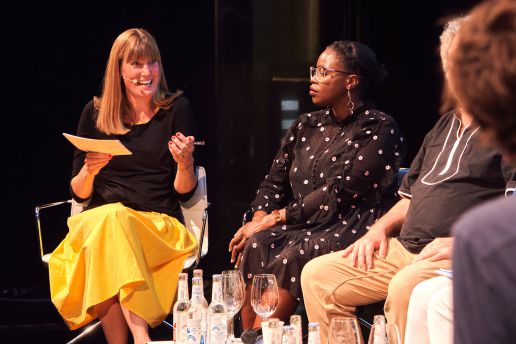
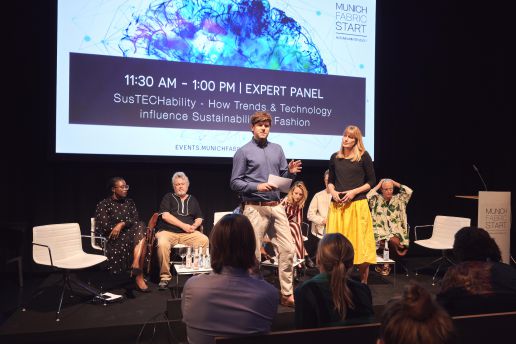
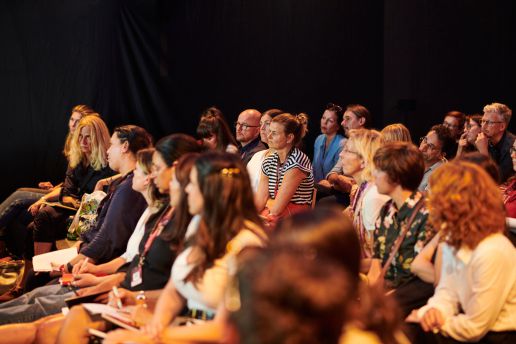
All dates and the complete lecture programme can be found here.
MUNICH FABRIC START & KEYHOUSE & SOURCING
04 February 2020 | 9.30am – 6.30pm
05 February 2020 | 9.30am – 6.30pm
06 February 2020 | 9.30am – 4.00pm
BLUEZONE
04 February 2020 | 9.30am – 6.30pm
05 February 2020 | 9.30am – 6.30pm
The Nurture Room: Interview with Pauline van Dongen
LET'S TAKE CARE OF FASHION TOGETHER.
During the previous edition of MUNICH FABRIC START, you presented the Smart Textile Pop-up Lab at the KEYHOUSE. What was it all about?
The aim of this Pop-up Lab was to familiarize people with smart textiles, and in particular those created by printed electronics. Through my work at Holst Centre (a leading Dutch R&D centre), I see the potential of printed electronics for the textile industry. These printed electronics are thin and stretchable and the printing process allows for a modular design approach. Moreover, they are made using familiar processes, namely through screen-printing conductive inks on flexible substrates like TPU and then heat bonding these smart “trims” onto textile. Visitors of the Pop-up Lab could see this process up close to better understand it and be inspired by the possibilities.



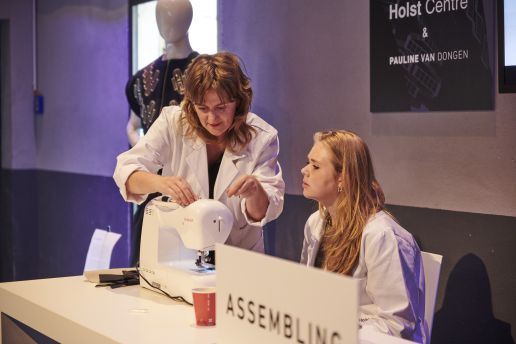
This time, visitors of the fair can book a (free) session in “The Nurture Room”. View the timetable and register here.
What will they experience there?
After having successfully shown the process of printing electronics and their integration in textiles, it is time for the next step. The Nurture Room is a space to reflect and to meet likeminded people who share a wish to do things differently within the fashion industry. It invites open dialogues addressing the urgency to create new relationships between humans and the clothing they wear.
The aim of the sessions at The Nurture Room is to not only inspire participants, but to ensure that they can follow up their inspiration with concrete actions once back in the office. You will be guided through the session by wearable technology experts: Pauline van Dongen and Marina Toeters. By booking a session on a particular topic, such as workwear, outdoor clothing or casual wear, you can tap into a wealth of knowledge and simultaneously help shape the direction of developments in the field of wearables.
The sessions are meant to connect companies covering the full value chain, in order to collectively contribute to new product developments. Together, we will discuss ways to embed technologies into clothing in ways that can nurture people and improve their wellbeing. Visitors will be able to encounter the latest developments that fall within this scope, such as MYSA 2.0: a “relax shirt” that guides the wearer through breathing exercises that can be felt through subtle vibrations along the spine.
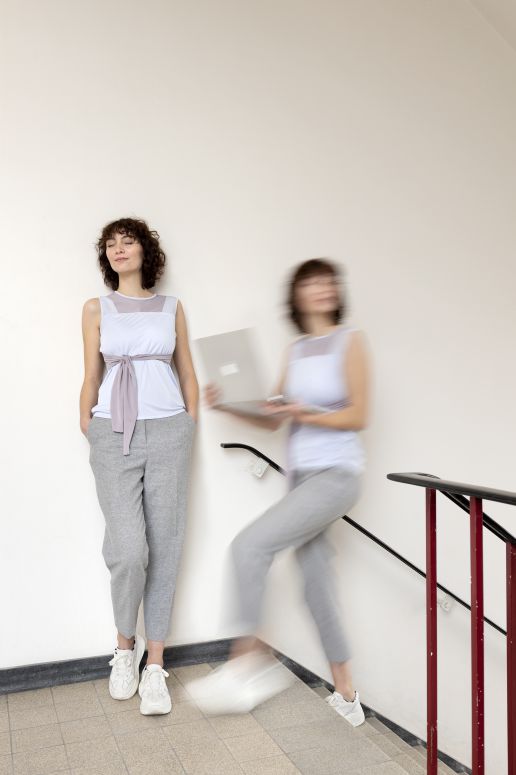
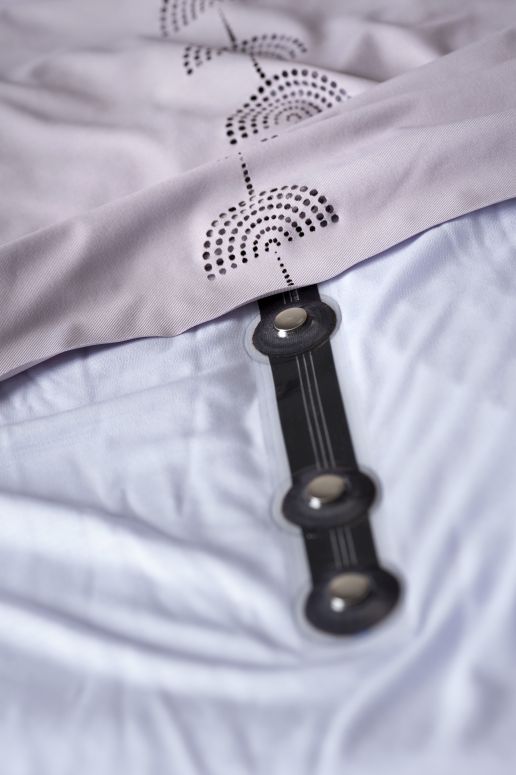
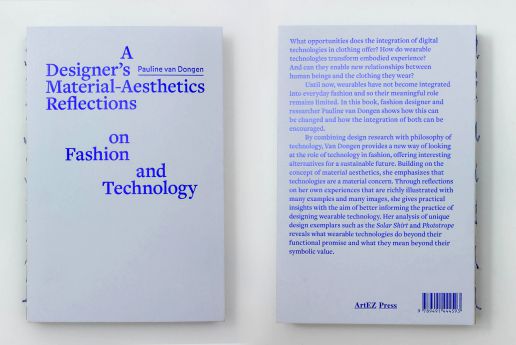
Can you tell us a bit more about your own research and how the idea of The Nurture Room relates to it?
In my own research, I focus on the way clothing mediates between our bodies and the world. Our clothes shape how we relate to the world, they actively shape our perceptions and our actions. I look at how we can strengthen our relationship and emotional bond with clothing and, by wearing clothing, with others and with the environment. When our clothes become active and responsive, how will this affect the human-garment relationship for example? My research shows that when we create wearables, we need to take into account the full set of experiential qualities of the garment, and not just the functionality of the technology. I extensively describe this approach in my recent book “A Designer’s Material-Aesthetics Reflections on Fashion and Technology”. It also includes practical guidance for designers and engineers who wish to develop wearables.
As a designer working between the fields of fashion design, textile innovation and technology, I understand these different worlds and know how to connect them. I would like people entering this space to think very consciously about what they want to develop and for whom, what new values the product will bring to people and how they incorporate considerations relating to the well-being of the planet. This ambition is reflected in the concept of The Nurture Room.
Why did you call it “The Nurture Room”?
Nurture is care that is given to someone while they are growing and developing. The term reflects the care with which we should all treat industry. In the context of “nature vs nurture”, the word “nurture” describes the influence of learning and other influences from one’s environment. I experienced how many new things I had to learn when I made a turn to wearables. In wanting to change the system as well as my own position and attitude as a designer, I also noticed that I needed to shed some of the premises that formed the basis for my fashion education. This learning and unlearning are processes that not many people in the industry take the time for or get the time for. While new perspectives are so desperately needed right now. So, to help facilitate this, our main message is: “Come and nurture yourself, by expanding your knowledge in the area of wearable technology.”
Visit The Nurture Room at MUNICH FABRIC START on February 4-6 2020 in Munich, Keyhouse, Booth #34
Due to the limited number of places available for the free individual workshops, we kindly ask you to register by mail to Chantal Gräff at cgr@munichfabricstart.com.
WORKSHOP TIMETABLE
Tuesday, 4th February
11.00 – 11.45 am: sports & activewear
14.00 – 14.45 pm: wool & tailoring
Wednesday, 5th February
11.00 – 11.45 am: workwear
14.00 – 14.45 pm: intimates
16.00 – 16.45 pm: outdoor
Thursday, 6th February
12.00 – 12.45 pm: casualwear
New Entries at MUNICH FABRIC START
Discover a selection of the latest suppliers and manufacturers to join the presentation of Fabrics, Additionals, Design Studios, Denim and Sourcing to showcase their collections for Spring.Summer 2021 in Munich. Register to attend now.

Forza Tekstil takes the expectations of their business partners to the next level by offering flexibility in production and perfect quality. The Turkish company is specialized in printed and plain fabrics, like viscose, viscose mixtures, cotton, linen, polyester and Tencel fabrics while adhering to the principles of productivity, sustainability and environmentally friendly production.
Section 2 | Stand F 208
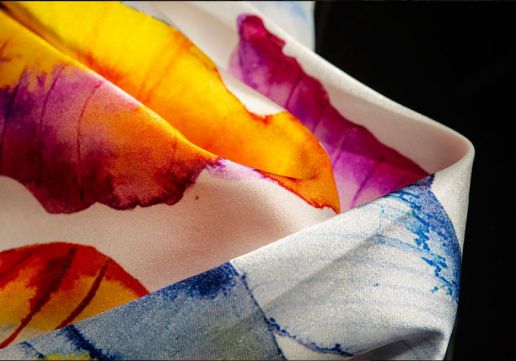
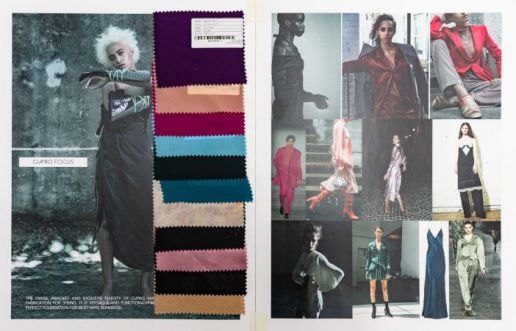
Shanghai Saite Silk was founded in 2004 as an incorporated company within the formation of the state-owned Shandong ZiBo No.2 silk weaving factory. We commit ourselves to designing, producing and selling women’s fabrics in the fields of silk, viscose and polyester.
Artrium 3 | Stand C 112
Telater creates with its long-lasting experiences and knowledge of raw materials and production techniques exclusive collections of fabrics and fashion with high quality. We are continuously evolving, visiting national and international fairs and catwalks in order to offer fabrics and designs aligned with the latest tendencies in the industry.
Hall 3 | Stand B 04
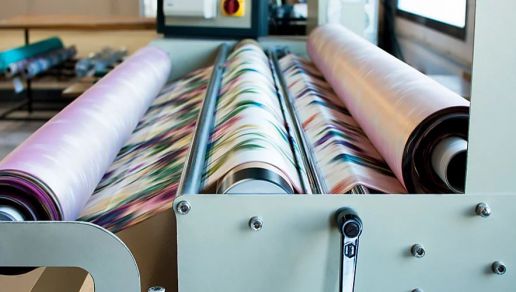
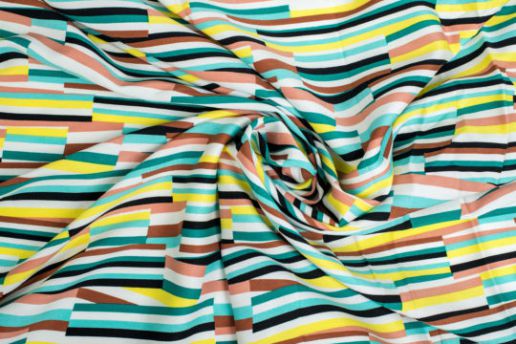
T-Style unites more than 1500 employees who work successfully every day on the development, production and improvement of high-quality knitwear made of cotton, viscose, polyester yarns and their blends. The company produces more than 20 tons of fabric per day – such as single jersey, pile fabrics, plush, interlock, ribbed textiles or fleece.
Section 2 | Stand E 224
Universal Textile produces underwear, outerwear, home textiles and upholstery fabrics since 1998. With a fabric production capacity of up to 60 tons per day, we offer outstanding services to brands from all over the world. We produce our fabrics in our own facilities in accordance with internationally recognized quality standards.
Section 2 | Stand E 221


Having entered the zipper sector in 1988, ECE Zipper has been running at its modern plant with 20.000 m2 closed site and its qualified staff in Avcilar Firuzköy, Turkey. ECE Zipper is an integrated establishment with its narrow weaving unit, modern dye-house, casting-house where special pullers are designed and produced with advanced technology machinery.
Hall 1 | Stand E19
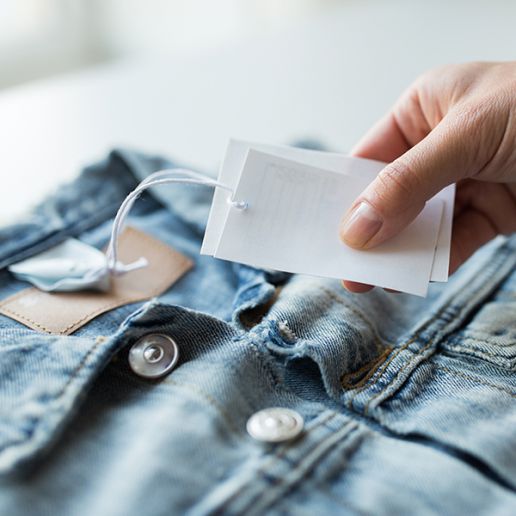
With over 12 years of experience in the trims and packaging industry supplying high quality products to a vast variety of domestic and international brands, we as Elements Printing and Packaging strive to give the best service to our customers. By remaining responsive to our customers’ needs and expectations, we are able to continuously adapt our business.
Hall 1 | Stand B15
Harmanci Label, as one of the leading label manufacturers in Turkey, serves to the biggest worldwide brands since 1931. Harmanci follows the needs of the sector as well as the fashion trends by producing woven, printed, screen printed and heat transfer labels and narrow woven ribbon in modern and environmental-responsible premises.
Hall 1 | Stand A 20
ITL is a global provider of Apparel Label Solutions supporting brands, retailers and manufacturers globally with a comprehensive range of products and services aimed at optimising brand identity and supply chain performance. Launching at Munich Fabric Start is their C.A.R.E Collection: a range of Conscious, Affordable, Responsible and Eco- Friendly labels that never compromise on quality or aesthetics.
Hall 2 | Stand A 19
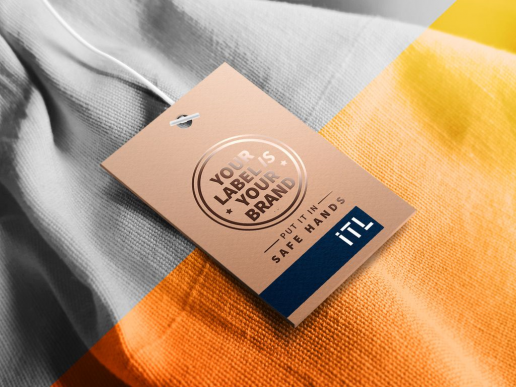
Linx Europe
Linx EU Newly developed collection made of recycled materials: outer fabrics, linings, trimmings. The focus is on sustainability and function alike. Mechanical functionality paired with innovative sustainable finishing variants. The fusion of fashion and function without limitation of hand feel and colour!
Hall 2 | Stand A 12
Sun Etiket is one of Turkey’s leading label and package design and -production companies providing services to national and international brands. Sun Etiket specialises in creating highly advanced, experiential labels and packaging since 1986. With over 150 experts in our team, we constantly focus on every brand’s uniqueness and strive to make the brand experience even more inspiring.
Hall 1 | Stand C 12

For over a decade, Denim Masters have worked in partnership with a variety of fashion brands as their denim apparel manufacturer of choice. Utilizing long-lasting tailoring expertise and traditional construction methods, our tailors and seamstresses create handmade garments of top quality at highly competitive prices.
Hall 7 | Stand B 06
Borkro Textile Wash LTD with its long-time experience in the textile industry, organizes and manages textile production in Bulgaria offering a complete range of women’s and men’s denim products, starting from pattern development to prototypes and from collections to bulk production. Furthermore, they are able to offer an extended variety of wash procedures and techniques which establishes them as one of the leading manufacturing companies specialized in denim garments. Their major goal is to offer fast and effective service, competitive prices, high standards, constant quality and high flexibility.
Hall 7 | Stand c 07
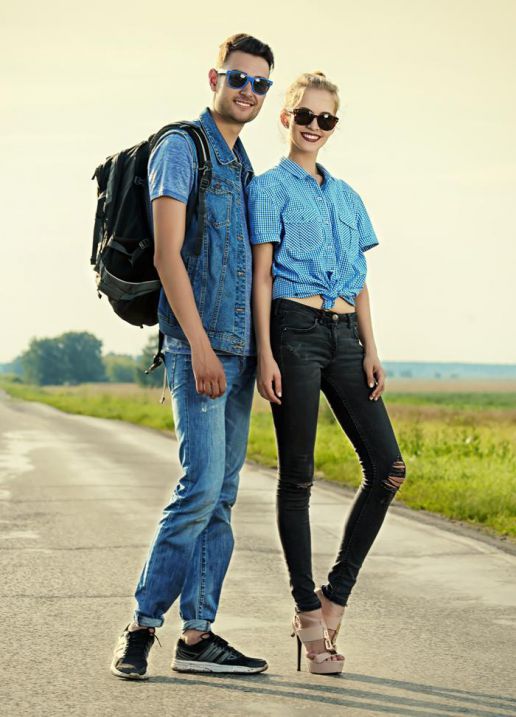
With a patented machine design and dyeing process, Island Denim can dye all the cellulosic fibres and blends in the desired yarn count (1 Ne – 200 Ne). By doing so, Island Denim gives stamina to many manufacturers of woven and knitted fabrics a great deal of freedom in the use of indigo in the design of their products.
Hall 7 | Stand c 20
Jeanci Konfeksiyon Tekstil produces mostly washed textiles on behalf of its own brand. The products are mostly denim, canvas, gabardine, satin and poplin. Besides, the company executes the finishing of woven fabric and textile by washing, dyeing in piece and other added values for final products. Jeanci has been manufacturing on behalf of prestigious brands in Europe for the last 23 years.
Hall 7 | Stand A 18
Stylers Group creates advantages for denim brands through strengths in sourcing, speed, stitching expertise and service, when it’s time for your jeans to take a step ahead – in fashion, sustainability and profitability.
Hall 7 | Stand B 03

Design Union is a textile print design studio producing unique contemporary fabric designs for fashion and interiors. The constantly evolving portfolio of silk screen and digital prints includes embroideries using vintage fabrics. The digital textile designs are sold to you as Photoshop PSD files in layers.
Section 1 Design Studios | Stand E 102
Primus Pattern is a textile design studio founded by Claudia Böhm. The qualified illustrator and owner of a studio in the heart of Munich is a creative researcher and conceptual partner in finding an excellent fitting and timeless design. Claudia Böhm combines drawn botany and geometry with handmade stylistics.
Section 1 Design Studios | Stand E 105


Care Applications works to reduce the environmental impact generated by the garment industry through new methods and devices. These developments are designed to optimize and modernize existing garment washing and dyeing machinery thus bringing improvements, savings and versatility. Within the Dye & Safe project, thanks to our advanced micro-nebulization metering device called ECOFinish together with our technical experience, we have been able to produce a traditional garment dye with exceptional penetration and evenness while using a minimum amount of water and greatly reducing the environmental impact. Care Applications offers this garment dyed with an even and penetrated standard dyeing process through the ECOFinish nebulization system saving 60% of water, 80% of energy and 99% of salt.
Hall 5 | Booth 23
A circular fashion industry is a regenerative system in which garments are able to circulate with maximum value retained for as long as possible before being able to re-enter the system through reuse or recycling. Therefore, we provide state of the art research, expertise and practical assets through workshops and software tools that help your brand transition towards circular practices.
Hall 5 | Booth 38
CLO Virtual Fashion creates cutting-edge 3D garment visualization technologies that cultivate a more creative and sustainable landscape for the fashion industry. CLO’s robust simulation engine allows you to create styles with countless layers and intricate details, which consistently solve glaring obstacles in your product life cycle.
Hall 5 | Booth 32
Recover works on the development of a closed-loop industry by offering brand, retail and factory partners a closed-loop solution for end-of-life waste management. The open-end spinner working for 7 decades with recycled cotton fibres is using textile waste as raw material to create new premium upcycled yarns. The Spanish company combines two resource and energy efficient processes – fibre upcycling and colour blend – to create new dye free upcycled fibres with accurate colours without using water or chemicals.
Hall 5 | Booth 15
A circular fashion industry is a regenerative system in which garments are able to circulate with maximum value retained for as long as possible before being able to re-enter the system through reuse or recycling. Therefore, we provide state of the art research, expertise and practical assets through workshops and software tools that help your brand transition towards circular practices.
Hall 5 | Booth 33

Cascade Enterprises is a cost effective, fully integrated, design-to-manufacture solutions service provider. The company offers ready-to-wear apparel to renowned retail and e-commerce fashion brands globally. We sample, source, plan, monitor and facilitate timely deliveries of high-quality goods that are ethically sourced.
Atrium 3 Sourcing | Stand D 110
Dragon Group Limited is an export-oriented company founded in 2001 and specialized in the development, manufacturing and distribution of fashion accessories. The company owns two factories for gloves production and at the same time has created partnerships with over 30 manufacturers of fashion accessories specialized in hats and scarves production.
Atrium 3 Sourcing | Stand D 108
Raith Textiles is a factory with GOTS and Oeko Tex certificate, producing baby- and children wear as well as women night wear for private labels.
Atrium 3 Sourcing | Stand D 104
Easy Invest Solutions is a manufacturer and exporter of high-quality men’s and women’s blouses with 20 years of experience. We supply both CMT as well as full product services, having among our suppliers the best of Italian, European and worldwide fabric producers. The company uses modern machinery and an automatic cutting system from Lectra. Prototype and sampling services are available as well as pattern creation and alteration and washing facilities for garment treatments.
Atrium 3 Sourcing | Stand D 110

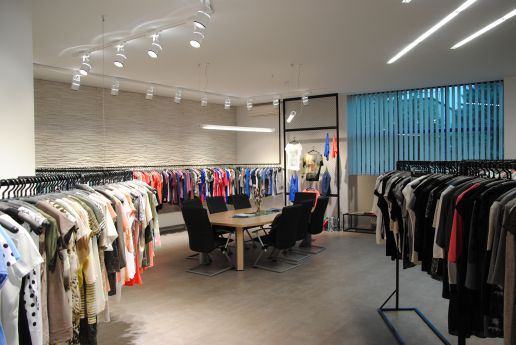
For 30 years now, Union 3 Fashion is a leader in women’s fashion, designing and manufacturing ready-to-wear garments. We are one of the largest export production units in the Balkans and Eastern Europe, exporting our products to many well-known clothing companies across Europe. Excellent customer service, competitive prices, best quality standards, quick production lead time, reliability and punctuality are among our main objectives.
Atrium 3 Sourcing | Stand D 105


